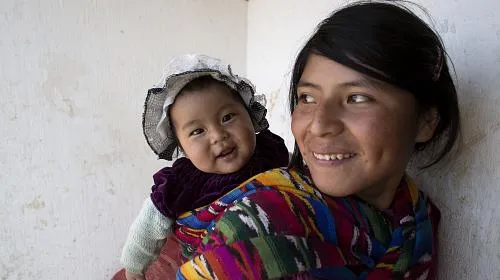ATLANTA – (July 30, 2015) The global poverty fighting group CARE hailed the introduction of the Reach Every Mother and Child Act of 2015, which will improve how the United States provides lifesaving assistance to women and children around the world.
The bipartisan legislation introduced by Senators Susan Collins (R-ME) and Christopher Coons (D-DE) aims to save the lives of 15 million children and 600,000 women by 2020 and helping to end preventable maternal and child deaths by 2035.
Every day, 800 women around the world die from pregnancy-related complications and 17,000 children die from preventable causes such as malaria and pneumonia. Helping women time and space their pregnancies, providing mothers and babies with adequate vitamins and nutrition, and vaccinations are often lifesaving steps in the developing world. The Reach Every Mother and Child Act will ensure that the United States is able to provide these lifesaving solutions in an efficient and strategic manner, reaching some of the world’s most vulnerable populations.
“Ending preventable maternal and child deaths is an ambitious goal, but one we can and must achieve,” said Michelle Nunn, CARE’s president and CEO. “At CARE we have seen how simple and inexpensive measures like giving mothers the tools to plan their pregnancies or improving sanitation and hygiene, can be the difference between life and death. The Reach Every Mother and Child Act is a critical tool to ensure the United States can continue to lead in providing lifesaving services to some of the world’s least-served communities, and help organizations like CARE ensure that every woman and child can survive and thrive.”
About CARE
Founded in 1945, CARE is a leading humanitarian organization fighting global poverty. CARE has more than six decades of experience helping people prepare for disasters, providing lifesaving assistance when a crisis hits, and helping communities recover after the emergency has passed. CARE places special focus on women and children, who are often disproportionately affected by disasters. To learn more, visit www.care.org.

